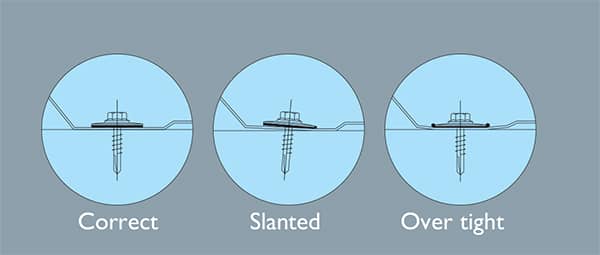- Reduced environmental impact
- Energy saving
- High natural light transmission
- Optically clear
- Damage and impact resistant
- Lightweight and easy to handle
- Weather resistant
- Co-extruded UV protection
- Excellent fire performance
- Chemical resistance
- Match any metal roof profile
- Limited warranty
All Marlon CS, CS Stadia, CS Diamond and CST products are available as Bio based.
Light transmission figures for the BioPlus options are the same as the standard Marlon CS products.
- Marlon CS BioPlus is a high quality, extruded, corrugated polycarbonate sheet with a co-extruded UV resistant coating
- As polycarbonate is a thermoplastic, it is important to take thermal expansion and contraction into account during any installation process.
- Marlon CS BioPlus has been independently tested to various Fire Standards; for the most current certification please contact our Technical Department.
- Marlon CS BioPlus is REACH and RoHS compliant, and 100% recyclable
- Any colour option is a through-colour so the colour of a cut edge will match the colour of the surface.
- Marlon CS BioPlus sheets are covered by a limited warranty. For full details contact our Technical Department
Storage & sheet preparation
- Store sheets on a flat surface. Use an opaque cover, tightly secured, to protect from wind, rain and sun. Storage is always preferable indoors.
- Ensure that the clearly marked UV protected surface of the Marlon CS BioPlus sheet is to the outside.
- Marlon CS BioPlus sheets must always be installed with the corrugation running vertically, or up-slope.
- Roofs should always be designed with a minimum slope of 5° to allow adequate rainwater run-off.
- Marlon CS BioPlus sheet can be cut with a fine tooth circular saw or hand saw at a shallow angle.
Thermal movement & fixing
Important - polycarbonate sheet will expand in the heat and contract in the cold.
- When drilling fixing holes they must be oversized to allow the sheet to move.
- Fixing holes should be drilled 6mm greater in diameter than the fixing shank for sheet lengths up to 2m and an additional 3mm per additional meter length of sheet. E.g. for a 4m long sheet, holes should be over drilled by 12mm
- Fixings must not be overtightened, again this allows the natural movement of the sheet and will avoid unnecessary damage to the sheet.
- Marlon CS BioPlus sheet must be isolated from plastisol and flexible PVC paints and coatings using an aluminium barrier tape.
- If installing onto fibre cement sheets ensure that all dust created when drilling holes is removed.

Finishing
Ensure that all sealants and tapes are compatible with Polycarbonate.
- All accessory products should be light coloured, preferably white.
- Sheets which span up to two purlin spacings are of optimum length to cope with thermal movement.
- Maximum recommended sheet length for Marlon CS BioPlus is 4m.
When installing any roofing material, including rooflights, ensure that safe working methods are adopted and appropriate safety equipment is used.
As a condition of ensuring that Marlon CS BioPlus sheets perform at optimum throughout their service life and retain light transmission properties, it is recommended that the sheets be cleaned periodically using suitable household cleaning agents as follows:
- Use lukewarm water to rinse the sheet and soften dirt.
- Make up a solution of lukewarm water and ordinary household cleaner or a mild soap and use this to wash the sheet.
- A sponge or soft cloth should then be used to gently remove dirt and grime.
- The cleaning process should then be repeated and the sheet rinsed and dried with a soft cloth.
WARNING
Care should be taken to observe the following precautions:
- Do not scrub Marlon CS BioPlus sheet with brushes or sharp instruments as the sheet will mark easily.
- Never steam clean, use low pressures for pressure washing.
- Avoid any abrasives or cleaners of a highly alkaline composition.
- It is generally advisable in all instances to test any cleaner on a sample piece of the Marlon CS BioPlus sheet first and it should also be remembered that cleaners and solvents which state that they are suitable for cleaning polycarbonate may not be safe for use on the UV protective surface of the panels.





